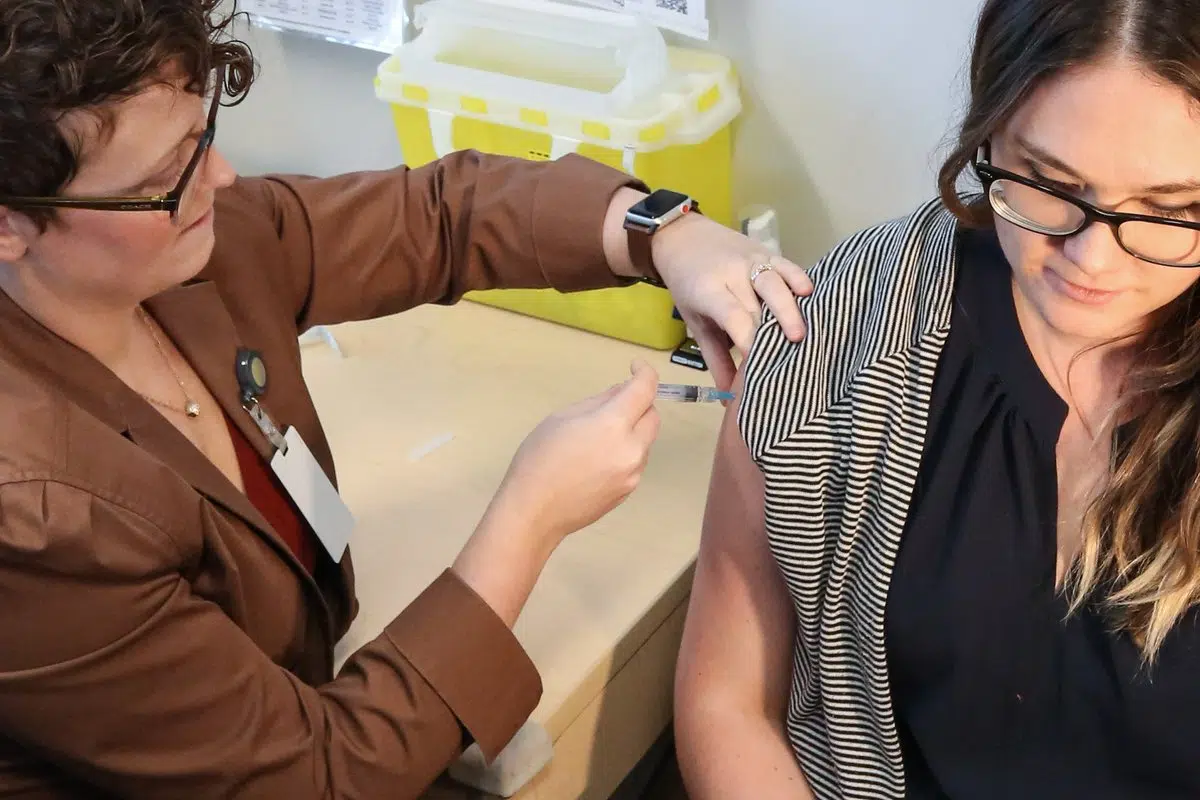
(Photo: Government of New Brunswick/Twitter)
Vaccine hesitancy is on the rise according to new research, with 1 in 10 Canadian adults saying their trust in vaccinations has decreased.
Local pharmacists are hoping to change that by debunking some commons myths.
Amalie Crawford, a pharmacist in Saint John, says these myths are mainly perpetuated online.
The largest myth is that vaccines make you sick, or give you the disease it’s trying to prevent. Crawford says a new survey from Health Canada found that 37 per cent of Canadians believe that.
“That simple is not true. Most vaccines don’t even contain a live version of the disease, and even the ones that do have a live virus in them, it’s weakened to the point where it cannot cause the disease itself,” she said.
“There’s just enough of it there to trigger an immune response or help your body to recognize that disease, so that if you did come in contact with it your body would be better able to fight it.”
You might feel some aches and pains after a shot, but Crawford says that’s just your body building an immunity to the disease.
Another myth she hears is that you only need to get vaccinated when you’re younger.
“Their effectiveness can decrease over time as we age and out bodies change, and there are certain things we need to follow up with booster doses, like tetanus, pertussis (whooping cough), diphtheria and of course the annual flu vaccination,” she said.
Measles is another disease that could require booster shots, she says, and there are a number of vaccines you need if you are travelling abroad.
Myth number three is that getting vaccinated only affects you.
Crawford explains your immunity to diseases affects those around you, as there are certain people who can’t be vaccinated, such as babies, and pregnant women.
“They can’t receive the vaccination themselves, and they rely on the majority of the population, or the number of people around them, being vaccinated so that they’re not bringing those diseases home or passing them off in the doctor’s office,” she said.
She says those with weak immune systems are also at risk.
“It’s really important that as many people that can be vaccinated are, so that it reduces the spread of different diseases,” she said.
Crawford also says people tend to avoid getting vaccines done because it’s “inconvenient,” but many don’t realize local pharmacists can perform one for you on short notice.
She says pharmacists have information on recommended vaccines for different age groups or for travel, and encourages those with questions to stop by and ask.
Pharmacy’s are often the most inexpensive and accessible way to get vaccines done, as they are open longer than a doctor’s office, and are often free.
Crawford says there are several vaccines that are kept on hand, such as a flu shot. Other vaccines, particularly for travel, may have to be ordered in, but can still be administered by a pharmacist.






